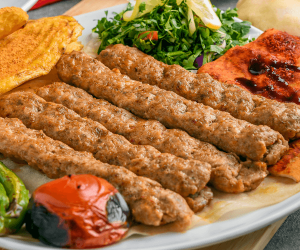By Alicia Buller – The National
LONDON // Young mum Shahin Bharwani beamed with delight as she watched the young crowds queue up to sample her “Nojitos” at London’s first Halal Food Festival held in the summer.
She selected the event as the launchpad for her non-alcohol halal-friendly drinks because it was located in her core market, East London, and allowed potential customers to physically taste and touch the product. “Nothing makes me happier than watching someone drink the Nojito and tell me how good it tastes,” she says.
By all estimates, the British Muslim and former deputy head teacher, Ms Bharwani, 37, is not your typical entrepreneur. She says she only came up with the idea six months ago when sitting in a restaurant and realising, once again, that there was nothing “nice or special” for Muslims to drink apart from a sugary soft drink or just plain fruit juice. This sparked the launch of The Mocktail Company in June last year, which has since sold more than 30,000 units of the mojito-inspired Nojito across the UK.
In April, Ms Bharwani will take part in the Muslim Lifestyle Show, which will showcase businesses aimed at this burgeoning consumer market. Worldwide, the halal food and beverage sector is forecast to be worth more than £2 trillion (Dh9.21tn) by the end of this decade, according to Reuters’ latest State of the Global Islamic Economy report, and is growing at nearly double the rate of the global economy generally.
More than 100 businesses from 14 countries will set up their stalls at London’s Olympia hall for the lifestyle show on April 15 and 16. Exhibitors will include producers and suppliers of halal food brands, toiletries and cosmetics; modest fashion; travel; Islamic finance; entertainment; and greeting cards and toys. Twenty thousand visitors are expected to pay the £10 entrance fee.
“The tide is definitely turning for the capital’s Islamic economy,” says Abdalhamid Evans, the founder of the London-based halal research firm Imarat Consultants and HalalFocus.com. “In 2017 we will see more home-grown Muslim brands and many of them will also appeal to non-Muslims because of their ethical and providence values.”
Mr Evans also predicts that the UK government is likely to turn its attention to the Islamic economy and launch more initiatives to support Muslim entrepreneurship and foreign inward investment.
In 2010, the global Muslim population was 1.6 billion people. By 2050 it is expected to reach 2.8 billion, a quarter of the world’s population. One-third of Muslims are under 15; two-thirds are under 30. The size of the Muslim middle class is forecast to triple by 2030. The economies and populations of countries with Muslim majorities are growing fast and Muslim minorities in Britain, Europe and North America are young, affluent and thriving.
In the past few years there has been an explosion in small businesses set up to cater for the growing demands of the Muslim consumer market. Many of these entrepreneurs are young, smart, Muslim and hungry. Each passing month involves the launch of new and ingenious businesses, each seeking to serve the increasingly sophisticated needs of a growing international class of Muslim – those who are born in the United Kingdom and are balancing their fast-paced western lifestyles with a desire to respect their religious values.
Last June, three young Muslim professionals packed in their day jobs to launch Halalnivore, London’s first gourmet halal meat home delivery service. The company has since signed up more than 200 monthly customers. “Good quality halal me
at can be hard to find in London,” says Walli Datoo, 35, the co-founder and chief executive of Halalnivore.
The entrepreneur says he hopes to tap into the capital’s growing demand for premium halal food. The overall value of the UK’s halal food market is £700 million, according to the Muslim Council of Britain. However, it is not just Muslims who are demanding high-quality meat.



